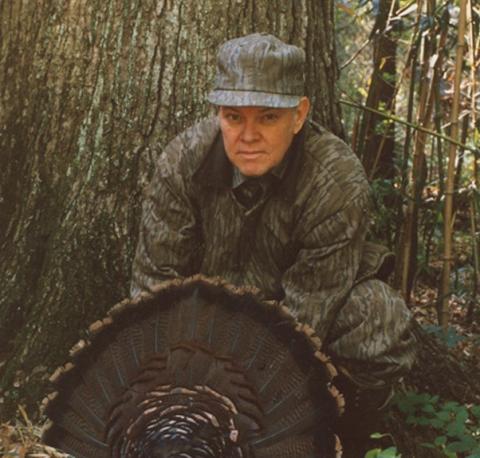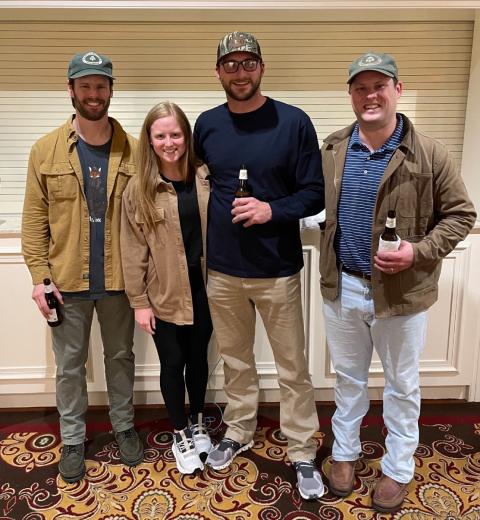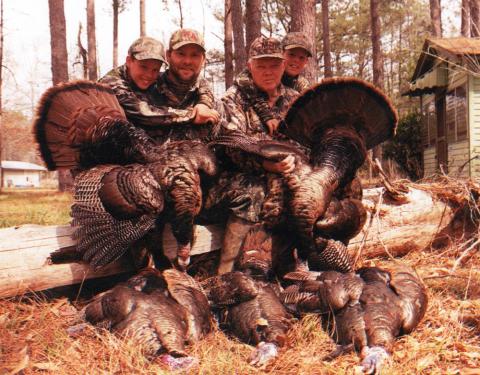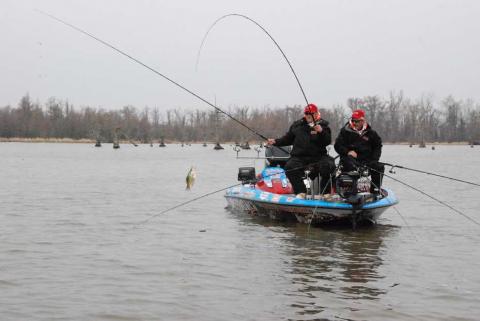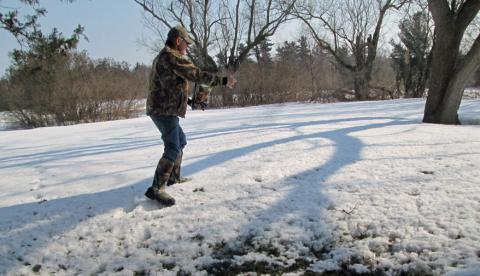Brenda Valentine | Originally published in GameKeepers: Farming for Wildlife Magazine
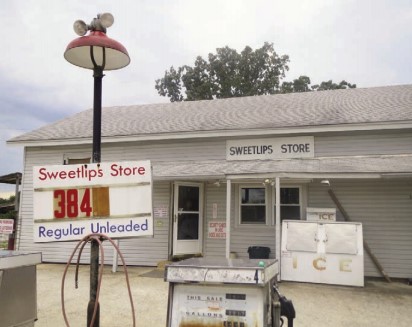
The horses were sweaty and gaunt in the flank; their riders were weary and thirsty. The detachment of confederate soldiers were passing through west Tennessee just south of Jackson, only a short spit from the bloody battlegrounds of Shiloh. This part of the “Volunteer State” has rolling red-dirt hills with small farmsteads with stands of hearty hardwood timber laced between patches of hip-high cotton. A small spring-fed creek runs through a portion of Chester County, offering men and steeds welcome refreshment. One officer drank long and deep savoring the coolness. In proper slow southern dialect, he alleged, “I declare, this magnificent spring water is so sweet to my lips." Thus the small settlement along the creek would then forward be known as, "Sweet Lips." That was a 150 years ago and Sweet Lips, TN remains a respite for body and soul.
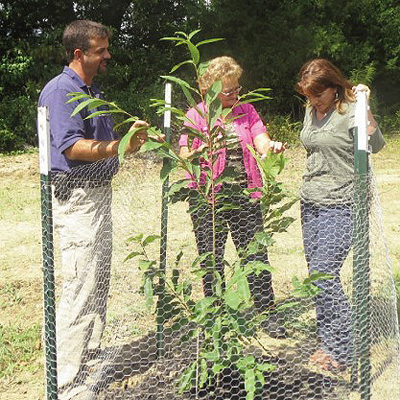
Laquita Wylie is a product of Sweet Lips whose roots go back to the days when Lt. Gen. Nathan Bedford Forrest patrolled the area and later when the famous sheriff, Buford Pusser, fought drugs and whiskey runners with a big hickory stick. Laquita was one of six daughters born to a dirt farmer trying to eke out a living with a team of mules and a strong back. Her grandfather had a sawmill and a tract of land with more timber than crop space but the times were not particularly favorable for lumber sales. With the Great Depression choking the entire country the accepted measure of wealth and success was a full belly. Laquita remembers well going out with her father in search of fresh game meat for the next family meal. Tramping the hills and hollers looking high in the treetops for a fat squirrel made an indelible image in this young tow-headed girl's memory. She loved the strong tall hickories and the stately oaks. She knew at an early age these trees not only were beautiful to look at but provided sustenance to wildlife and therefore her family.
Laquita somehow became the designated "father's helper" with the farm chores of chopping cotton, picking corn and milking cows while her sisters learned the more domestic duties. Perhaps it was only natural she would be the one to permanently bond with the land. In time, Laquita married and left Sweet Lips to establish a family-run electrical and refrigeration business with her husband in Batesville, Arkansas. This is where her two daughters were born and raised. Throughout those busy years Lequita's heart never left the meadows and creek bottoms of her youth. There was always a drawing force to come home to Sweet Lips and be a part of the land. Upon their retirement, the Wylie's built a home in TN and purchased the remaining portions of the old family farm from her sisters. The couple was enjoying life in the country, teaching their grandchildren to hunt and fish when Mr. Wylie was stricken with cancer and passed away.
Losing a life partner is a wound that never heals. Laquita somehow found solace from the land during her years of mourning. It became a source of comfort to walk the hills and gaze out over the treetops, remembering her childhood and feeling the spirits of her father and grandfather nearby. The fields where she once picked cotton were long ago fenced and rented for cattle pasture. She discovered the soothing drone of a tractor engine and spent many hot summer days enjoying the monotony of bush-hogging the pastures. Family and neighbors worried for her safety while maneuvering the tractor up and down the steep hillsides of the remote farm. During the long winters she spent day after day deer hunting from the shooting towers she had shared with her husband. While lost in her tractor and deer stand induced reverie, Laquita began to think about the welfare of the land and future generations of her family. A dream was forming to return the land to a more productive state through forestry and wildlife enhancements. This would be her lasting legacy for those who followed. Setting the of conservation dream in action would be the turning point in Laquita's mourning that gave her purpose of life again. She was becoming a “GameKeeper.”
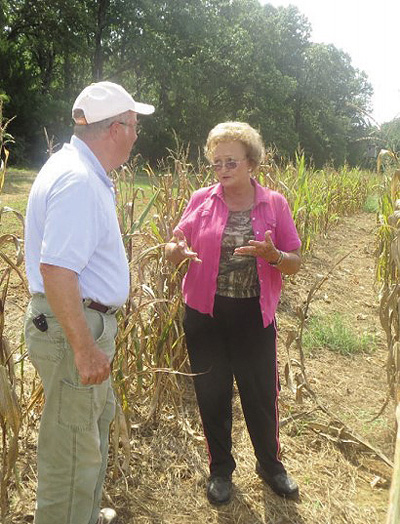
for Chester Co., Brad Denton, about her disappointment
with drought, squirrels and raccoons demolishing her food
plot of corn this year.
USDA Natural Resources Conservation District Manager for Chester Co., Brad Denton, had known Mrs. Wylie for some time and was excited when he learned of her wishes to enhance the property. Brad explained the many incentives available through NRCS and WHIP programs. He introduced her to Area Resource Biologist, Mike Hansbrough, who listened to Laquita's ideas and created a conservation plan to match her visions.
In 2010, Laquita, Brad and Mike rolled up their sleeves grabbed their shovels and went to planting trees and food plots according to the NRCS plan. Over 7,200 oak, pecan, persimmon, plum and dogwood went in the ground first year. Seeing the enthusiasm and devotion Laquita was putting forth for the tree project, Mike sought to partner with the American Chestnut Foundation in Ashville, NC to entrust her with the care of 2 very rare 94% pure Restoration Chestnut trees. His instincts of her accountability proved correct. Making sure those 2 young trees flourished on her farm became a very personal mission for the new conservationist.
Plans are in underway to have a permanent marker erected commemorating the special trees as the rebirth of a once abundant specie that was all but wiped out from a blight. Annual and perennial food plots were placed in strategic areas and a few special friends are invited to join her in a hunt each year. Laquita recruits the help of grandchildren to manage doe populations and balance the whitetail herd. She maintains year-round mineral stations and runs multiple trail cameras to monitor populations of desirable wildlife as well as undesirable predators. She has discovered the thrill of turkey hunting and takes every measure to enhance the well-being of wild turkeys in the area.
Gratification came quickly as the seedling trees took root during the first winter and sprouted fresh leaves the following spring. This spurned Laquita to make even more improvements to her farm. Cattle were removed and riparian forest buffers put in place to provide wildlife cover and help reduce erosion. Wide hedgerows featuring 2 or more species were planted to further enhance nesting, cover, and overall habitat. Laquita's boundless energy had her looking forward to the next project before the dirt had settled from the last. She continues to work closely with Brad and Mike, who as she proclaims, are now part of her family.
The 2012 tree/shrub planting plan called for almost 11,000 seedlings of various native species of her choice to be planted. That might sound like a monumental undertaking to some but not to a motivated woman with a passion for the land. The seeds of conservation were planted early in Laquita and lay dormant for many years. It took a tragedy for those seeds to sprout not unlike how a prescribed burn works in nature. Perhaps she discovered her passion for gamekeeping later in life than some but she is working overtime to fulfill a dream that her great-great-great grandchildren will see the rewards of giving back to the land and continue the sound conservation practices she is setting in place.
Just imagine if those soldiers were to ride through the farm today and see the “Eden” she is building the small town might be called “Sweet Laquita's Farm” instead of Sweet Lips, Tennessee.




















